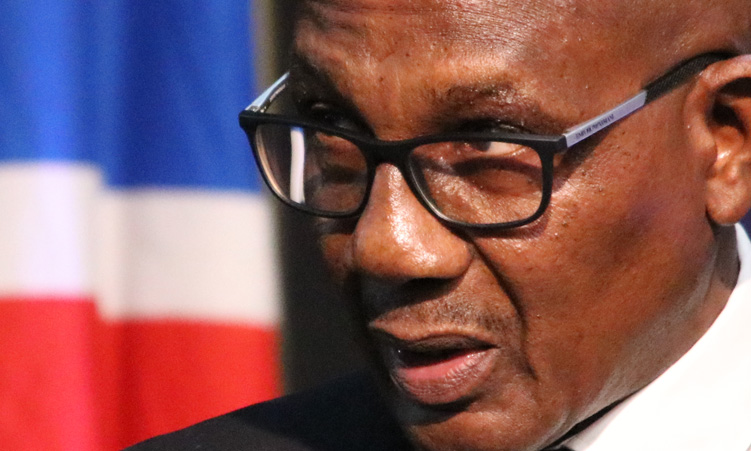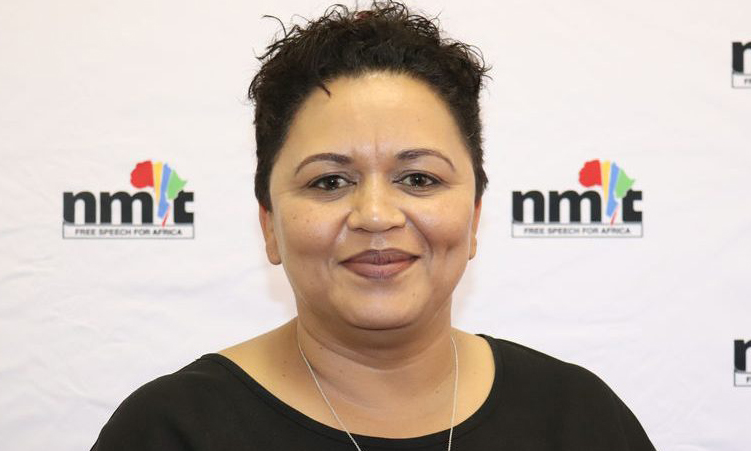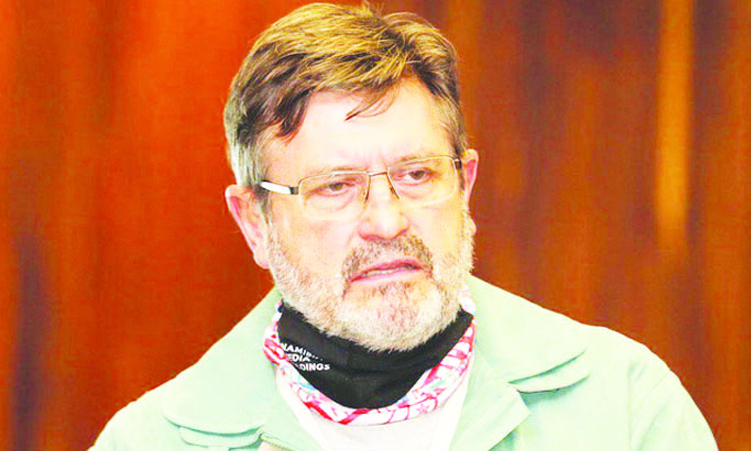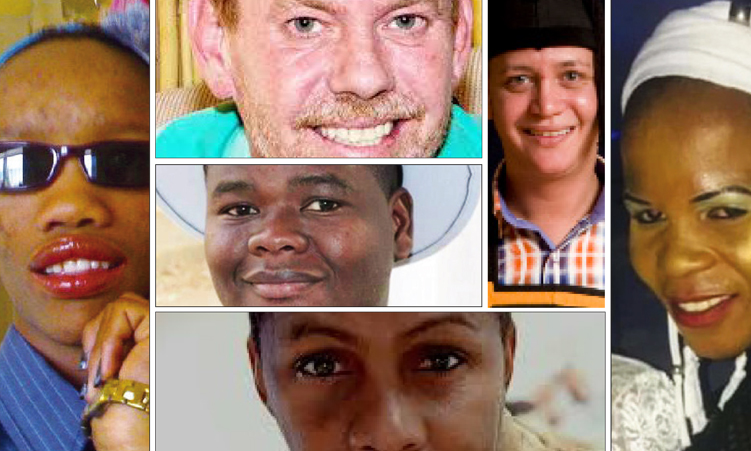A big tree that provided shade to the people of Namibia has fallen.
Indeed, a big tree has fallen leaving Namibians exposed to all sorts of extreme weather, be it heat, severe cold or rain.
A strong and heavy voice for development and unity in Namibia and for Africa has gone silent. A champion of the emancipation of the Namibian people from poverty has gone to join the forefathers and mothers.
Indeed, a deep void engulfed the people of Namibia and a profound sense of loss is observed across our continent and the world at large.
I speak of president Hage Geingob, the man who many Namibians, judging from the daily television testimonies since his demise, have described as a great leader; a liberation hero; a brave and fearless fighter who spoke truth to power; a caring person who shared with the have-nots; the man with an imposing figure but a charismatic leader; the man with a remarkable ability to connect with everyone, young and old; the man with a great sense of humour, a God-fearing man; a symbol of hope; a selfless and legendary leader; a unifier and beacon of unity.
I received with grief, the sad news of the death of president Geingob in Dubai, while in transit from Singapore.
I saw him last at the airport when he was boarding a plane to the United States of America on Thursday, 25 January.
Little did I know, this was our last handshake. However, I am comforted by the fact that at least I had an opportunity have a three-hour conversation with him on Saturday, 20 January, when madam Geingos kindly invited me to come to Casa Rosalia.
Therefore, I stand here today to pay tribute to one of the visionary Pan-Africanists, an administrator of note, an outstanding scholar of great repute and a seasoned diplomat who contributed immensely to the total liberation of the African continent in general and to the struggle for Namibia’s freedom and genuine independence, in particular.
To me, always in admiration of his pedigree as a thinker and scholar-practitioner par excellence, president Geingob remains as a father, a gracious teacher, a friend and a mentor. I will keep these as my antiques.
My path crossed with this great man with an encyclopedic brain in 1995, when he identified me among many other young Namibians to come and work in his private office as his senior special assistant (director level).
Yes, I was also young some years ago. A few years later, Geingob, who was prime minister at that time, also hired Sacky Shanghala, Mathew Gowaseb, Audrin Mathe, the late Kazenambo Kazenambo, Alfredo Hengari and many other young Namibians at different times.
All of us were young people and had not been in exile except for Kazenambo Kazenambo. We were commonly referred to as Geingob’s kindergarten. This was not said in positive light by those who called us as such.
It was clearly meant to mock Geingob, who they believed surrounded himself with people they considered as kids and not suitable to support him in the discharge of his constitutional responsibilities.
Years later, Geingob’s kindergarten produced national leaders such as Kazanambo and Shanghala who became Cabinet ministers, strategy and communication expert and an author in his own right, Gowaseb, and three PhD holders in the form of Dr Mathe, Dr Hengari and of course, yours truly.
President Geingob used to tell us that leaders should be strong enough to fall, tough enough to laugh and tender enough to cry. His PhD dissertation is born out of that philosophy.
Thanks to president Geingob for believing in young people and his inclusive approach to recruitment. We continued to witness his belief in the youth during his Presidency.
He was the chairman of the Constituent Assembly that drafted the Namibian Constitution in a record time of 90 days, which has been described as one of the best in the world.
This task involved a great deal of successfully negotiating conflicting interests. His chairmanship of the Constituent Assembly is a true example of classic leadership. The man who had undertaken the complex task of establishing the governance architecture and integrating 11 ethnic administrations into one national public service and setting up government institutions and frameworks from scratch.
In recognition of his contributions locally and globally, president Geingob, received four honorary PhDs but refused to use the honourific title of ‘Doctor’ until he studied and earned his own PhD in 2004 at the age of 63 from Leeds University.
President Geingob was truly committed to principles of good governance, accountability and transparency since independence.
Some of his initiatives during his time as the prime minister includes the introduction the public service charter general principles which became operational in 1997.
His office facilitated individual customer service charters in different offices, ministries and agencies. As the chairman of the fourteenth meeting of experts on the United Nations Programme in Public Administration and Finance, he helped in drafting the final version of the African Civil Service Charter that was adopted in Windhoek in 2001.
To this end, it’s important to note that the African Civil Service Charter was modelled on ours. Namibian was among the few countries on the African continent that had developed its public service charter. Thanks to the visionary leadership of prime minister Geingob.
Way back in 1998, he championed the National Integrity Conference that gave birth to the current anti-corruption law. In order to strengthen anti-corruption measures, as president, he assented into law the Anti-Corruption Amendment Act, including the Public Procurement Act, Access to Information Act, as well the Whistle-Blowers Protection Act.
These pieces of legislation are important tools for combating corruption and promotion of integrity in society.
President Geingob, while prime minister, spearheaded Namibia’s leap into the information age. As a result of his commitment, awareness was raised in the government about information and communication (IT) technologies that lead to few IT workshops for Cabinet Ministers in 1999 to enhance efficiencies.
These initiatives led to the first approved e-governance policy for the public service in 2005.
He also championed press freedom. His dedication to the freedom of the press was confirmed by several Namibian journalists in the past few days since his demise. He believed that a free press is the cornerstone of democracy.
He engaged journalists and allowed open discussions. He initiated a NBC radio show called ‘Prime Minister’s Question Time’ as his way of engaging Namibian citizens using media.
He encouraged us as senior government officials to be open and transparent with the media and would not be happy with us if the government did not offer its side of the story.
It is for this reason that Namibia constantly performed well in this area, particularly during his Presidency.
Dear mourners, president Geingob was a very strong negotiator, an engaging and consultative person.
In 1996, six years after independence, Namibia witnessed a prolonged 45 days strike that took place at the Tsumeb Corporation Limited (TCL).
This strike was the longest and most difficult one since independence. It was not only caused by wage demands and other grievances of the mine workers, but also by the harsh and uncompromising attitude of the TCL management.
Under the guidance of prime minister Geingob, who chaired the mediation talks, management and and the trade unions agreed to a compromise 10,5% wage increase.
We saw him doing the same as president when our government negotiating team, under my chairmanship, and the recognised trade unions could not reach an agreement.
I have highlighted just a few of important achievements of this great man while I worked in his private office during his time as prime minister. However, as you might all agree, his achievements cannot be accounted for in a short period of time. We need to write books about this great statesman. Therefore, as we celebrate the life of this great leader and a dedicated public servant, Namibians should find solace and comfort in his deep footprints and legacy, invaluable contributions and exemplary leadership, including his emphasis on unity of purpose and togetherness.
As Namibians, we owe the Geingob and the Kalondo family our profound sense of gratitude for the role president Geingob played in this country. He literally spent close to 60 years out of his 82 years of life on earth struggling and working hard for the people of Namibia.
I want to end by saying Namibia is poorer today without president Hage Geingob, an intellectual giant who was a divine gift of God to the people of Namibia. Indeed a true gift of God directly to the people of Namibia. Despite a series of bitter struggles, he endured, his boldness and exemplary leadership shone out! Nothing could keep him down. He fought it all. He will be greatly missed but his legacy will continue to live with us.
Finally, I take this opportunity to offer my special heartfelt condolences to madam Monica Geingos, the children and the entire extended family. May the spirit of president Geingob continue to rest in peace. Go well my president, go well my father, go well my hero, go well my mentor.
*George Simataa is the secretary to Cabinet.
Stay informed with The Namibian – your source for credible journalism. Get in-depth reporting and opinions for
only N$85 a month. Invest in journalism, invest in democracy –
Subscribe Now!






